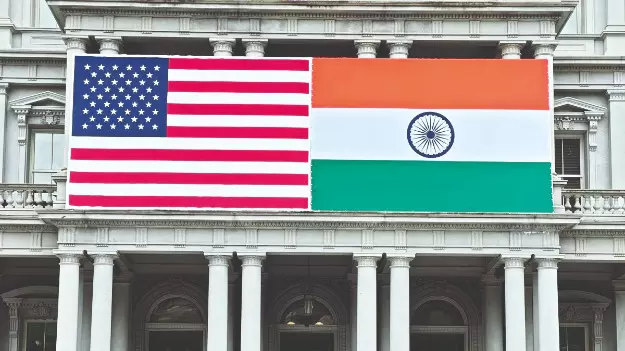
New Delhi, July 14 -- The negotiations between India and the US for a proposed trade agreement are going at a fast pace, Commerce and Industry Minister Piyush Goyal said on Monday.
The Indian team has reached Washington for the next round of talks on the first tranche of the bilateral trade agreement.
"Negotiations are going on at a very fast pace and in the spirit of mutual cooperation so that we can come out with a win-win trade complementing agreement with the United States," Goyal told reporters here.
Meanwhile, Commerce Secretary Sunil Barthwal at a separate event said that negotiations for proposed trade agreements with the European Union (EU) and the US are going on.
He said that the free trade agreements (FTAs) that India is doing are one of the key enablers to promote global capability centres (GCCs) in the country.
"So if you look at the free trade agreements today, which we are doing with the UK, which we have just announced, with European Union (EU), which is going on, with the US again discussions are on with several other countries in the world," Barthwal said here at CII GCC Business Summit here.
India and the US are negotiating a bilateral trade agreement (BTA). They are targeting to conclude the first phase of the pact by fall (September-October) of this year.
Similarly, India and the EU are also negotiating a free trade agreement.
In June 2022, India and the 27-nation EU bloc resumed negotiations for a comprehensive free trade agreement, an investment protection agreement and a pact on geographical indications (GIs) after a gap of over eight years.
The talks stalled in 2013 due to differences over the level of opening up of the markets. India and the EU are targeting to conclude the free trade deal by the end of this year.
Further, the secretary said that today's agreements are different from the traditional FTAs, which were confined to traditional trade, tariffs and manufacturing.
The new pacts are a more complex set of agreements which include services, a regulatory system in services, including the FDI (foreign direct investment).
"Those are being looked at (in the new pacts)," he said, adding that now there is also an institutional mechanism in these pacts to look at issues like harmonising regulations and standards.
And these are important facets of GCCs, he said, adding that modern FTAs will lead to the innovation corridor, which will facilitate GCCs in
India.
"We are looking at the IPR (intellectual property rights) chapters. We are looking at what the coordination mechanism will be in case disputes arise. That is another area which we look at in FTAs," the secretary said.
Besides, the new age pacts focus on principles of digital trade, which the partner countries have to adopt.
"If there is a data localisation or data privacy laws, then how will they be looked at. That is another angle, which we define in these FTAs," he said.
The new trade agreements, Barthwal said, are addressing a whole gamut of issues. "And therefore, it is taking a lot of time when we do these FTAs. There are detailed discussions, detailed deliberations, and detailed stakeholder consultation," he said.
He added that in the FTA with the UK, there is a chapter on innovation, which was not the case earlier. There is also a mechanism to set up innovation working groups under that deal, which was announced on May 6, but has not yet been signed.
"The ultimate point of these FTAs is that once these are signed...they (businesses) will get certainty about those regulations, because those regulations are not going to change unless and until you have agreed differently. And it gives certainty," Barthwal said.
Published by HT Digital Content Services with permission from Millennium Post.
